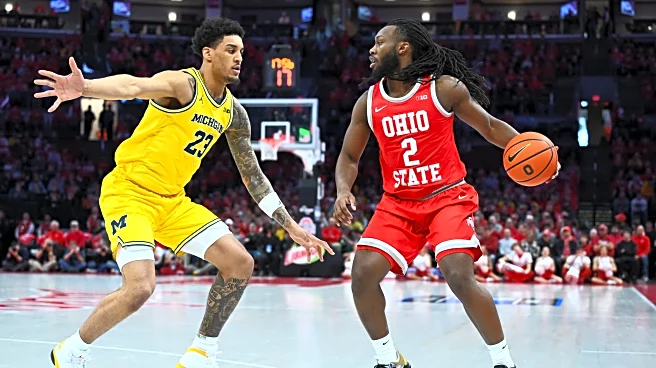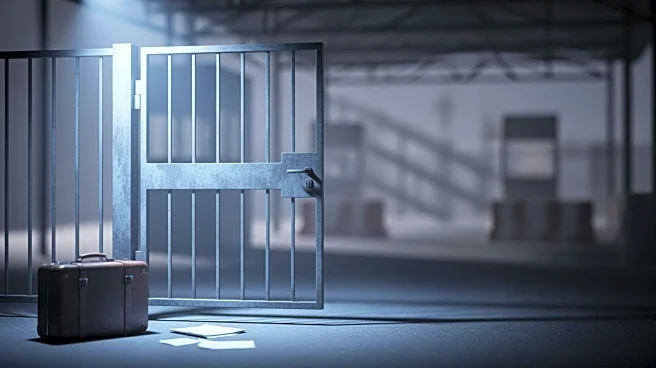What's Happening?
In Game 1 of the World Series, Ernie Clement of the Toronto Blue Jays made a critical baserunning error that potentially cost his team a rally. During the second inning, with two outs, George Springer hit a ground ball that allowed him to reach base safely.
Clement, running from first to second, attempted to advance to third base while the ball was being tossed around the infield. However, he was thrown out, ending the inning. This play was part of a game where the Dodgers initially took the lead with Enrique Hernandez's RBI single and extended it with a run scored by Mookie Betts. The Blue Jays managed to tie the game in the fourth inning with a two-run homer by Daulton Varsho. The game also marked the return of Bo Bichette to the Blue Jays' lineup, playing second base for the first time since 2019.
Why It's Important?
Clement's baserunning mistake highlights the high-pressure environment of the World Series, where every play can significantly impact the game's outcome. For the Blue Jays, this error underscores the importance of maintaining composure and making strategic decisions under pressure. The return of Bo Bichette is crucial for the Blue Jays, as his presence strengthens their lineup. However, the Dodgers' ability to capitalize on mistakes and maintain their lead demonstrates their competitive edge. This game sets the tone for the rest of the series, emphasizing the need for both teams to minimize errors and capitalize on opportunities.
What's Next?
As the World Series progresses, both teams will need to adjust their strategies to avoid similar mistakes. The Blue Jays will likely focus on refining their baserunning tactics and ensuring that players like Clement are better prepared for high-stakes situations. The Dodgers, on the other hand, will aim to maintain their momentum and continue exploiting any weaknesses in the Blue Jays' gameplay. The outcome of this series could hinge on which team can best adapt to the challenges presented in these early games.















